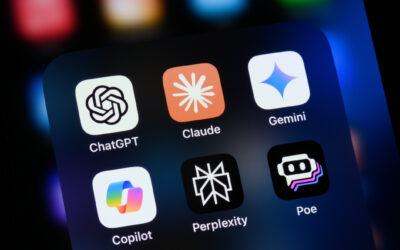Does Your Social Media Need a Good Scrubbing?
Employers are increasingly using social media to screen prospective candidates, in fact, many use third-party services to screen applicants. Thanks to AI, employers can not only search the big, known social media players – Facebook, Twitter, Instagram and LinkedIn – but they can also look through every Reddit post, Pinterest pin, blog comment and insert-name-of-emerging-platform-here you ever posted.
Your social media profiles are leaving breadcrumbs all over the internet. Should you clean them up?
What Hiring Managers Look For
Most hiring managers are not combing through the internet looking for reasons not to hire someone. On the contrary, most employers are looking for reasons to hire candidates. According to a recent CareerBuilder survey, employers conduct social screenings to:
Look for information supporting a candidate’s job qualifications (58%)
Ensure that the candidate has a professional online persona (50%)
See what others are posting about the candidate (34%)
Less than a quarter of respondents (24%) said they check social media to search for reasons not to hire someone.
 What Hiring Managers Find
What Hiring Managers Find
Many employers responded that when they conduct social screenings, they found information supporting the candidate’s professional qualifications, they were impressed by their professional image and they thought the candidate displayed creativity.
But, more than half of employers also found something during their social screenings that led them not to hire someone. These are the leading types of posts and behavior that left employers with a bad impression:
- Provocative or inappropriate photographs, videos or information
- Information about candidate’s drinking or drug use
- Discriminatory comments related to race, gender, religion, etc.
- Information linking candidate to criminal behavior
The survey results go on to list work-related errors, such as candidates lying about qualifications, poor communication skills and bad-mouthing a previous company or fellow employee.
Don’t lie. Even about the less egregious things. Make sure that your social media matches the story you are telling the hiring manager. If you told the interviewer how much you love working with people, several Instagram posts about how much of an introvert you are is not helping your case. If you are being considered for a position where you must build teams and coalitions across a diverse set of stakeholders, perhaps you should delete that Twitter thread where you argued vehemently with anyone and everyone who came for your favorite football team.
Do tip the needle. Think of social screenings as a needle that can tip things in, or away from, your favor. All things being equal, if you are up against a similarly qualified candidate, a positive or negative social screening can mean getting the job or not.
Do spend some time going through your social media accounts. Put yourself in the hiring manager’s shoes. Based on what you find, would you hire you? Why? Do you stand behind your posts? If not, it might be time to scrub your profiles.
Don’t erase your accounts completely. Not having an online presence can make it look like your have something to hide. Or, your accounts are under a ridiculous alias – which is not very professional either.
Do keep your profiles squeaky clean, even after you are hired.Employers will often research current employees on social networks. And sometimes what they find can lead them to discipline or even fire an employee.
Is This Legal?
Social media screenings are legal – but they must be compliant.
Compliant social screenings:
- Focus only on business-related information and redacts protected class information (i.e. race, religion, age, disability, sex, etc.).
- Provide relevant authorizations/disclosures and gets explicit permission from the candidate/employee.
- Must not use scraping, hacking or otherwise illegal/unethical methods of gaining access to social media accounts. In many states, it is illegal for an employer to ask a candidate or employee to disclose their social media account login information for screening or monitoring.
- Ensure that the right person is being reviewed.
If a company rejects an applicant due to information found during a social media screening check, they are required to inform the job applicant via a pre-adverse action notice – just as they would for a criminal background check.
Ensuring that hiring managers do not see an applicant’s protected class information is a big reason why companies outsource social screenings. Companies who take a more “DIY” approach run the risk of viewing a candidate’s protected class information and if the candidate is not hired, this could be grounds for a discrimination lawsuit.
Remember, fit goes both ways. Yes, you should delete posts you wouldn’t want a future boss to see. But if the posts are about something you are truly passionate about and you think you might not get hired by a company based on these posts, maybe the company is not the right fit for you.Take a good look at your social media profiles. Decide what you are passionate about and what type of companies you want to work for. Does your social media match the story you want to tell future employers? If not, it might be time to give them a good scrub.






